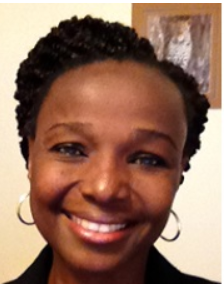
Dr. Folashade Agusto
Illustration from MIDAS COVID-19 portal
Dr. Folashade Agusto, Assistant Professor of Natural Sciences and Mathematics – Ecology & Evolutionary Biology at the University of Kansas and synthesis team member for the Kansas NSF EPSCoR RII Track-1 Award OIA-1656006: Microbiomes of Aquatic, Plant, and Soil Systems across Kansas (MAPS) and her colleagues Dr. A. Townsend Peterson, Natural Sciences and Mathematics – Ecology & Evolutionary Biology and KU Biodiversity Institute University Distinguished Professor, and Dr. Jarron M. Saint Onge, Associate Professor of Sociology at KU, recently received a National Science Foundation (NSF) Rapid Response Research (RAPID) Award to work on issues related to COVID-19. NSF RAPID Awards are designed to quickly respond to “natural or anthropogenic disasters and similar unanticipated events.” The title of their award is RAPID: COVID-19 Behavior, Perception, and Control Across Geographic and Economic Gradients. The following is an excerpt from their abstract to further explain their project:
This project will develop mathematical models to address three fundamental questions: 1) how much participation and coordinated control is needed for effective protection? 2) what independent control efforts can compensate for lack of coordination to achieve effective protection? and 3) how do community population demographics, socioeconomic conditions, and health care infrastructure impact outcomes? This project aims to inform coordination of disease control policies at all scales (local, regional, national, international) to aid in curtailing the ongoing and future outbreaks. This project will advance fundamental understanding of the impacts of control efforts via a new risk perception-driven infectious disease model, and predict which drivers of public demand for community-level control efforts might lead to potentially harmful long-term decisions.
The three mathematical models will build upon each other, with each subsequent model adding another level of complexity to simulate how the disease can and has spread. Their project is unique because as they build their models, they will consider variable drivers such as “public fear, perception of risk, and adherence or defiance of disease-control measures like quarantines or travel bans.” Because most models don’t incorporate human responses, this project is expected to provide insight to how people’s behavior and perception of risk can impact the spread of COVID-19. If successful, these models could be applied to future pandemic-like situations.
Learn more about the award here

